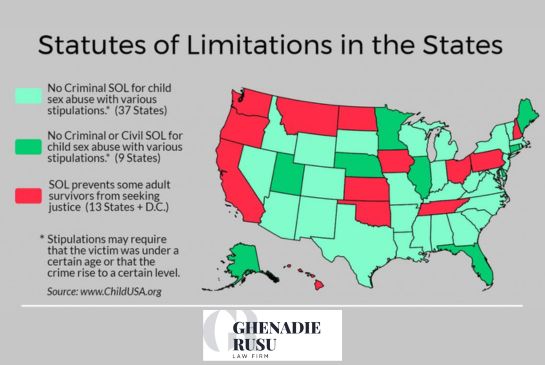Immigration laws play a vital role in shaping the demographics, culture, and economy of a country. They dictate who can enter, stay, and become citizens of a nation. Recently, a new immigration law has been enacted with the aim of addressing various issues, streamlining the immigration process, and adapting to the changing dynamics of the global landscape. In this article, we will explore the key aspects of the new immigration law, its implications, and the effects it may have on individuals and society as a whole.
Understanding the New Immigration Law
The implementation of the new Immigration Law comes as a response to evolving societal and economic needs. Governments often revise immigration policies to align them with the changing realities of their countries. The new law focuses on creating a more efficient and comprehensive immigration system that promotes national interests while considering the well-being of immigrants.
Key Changes and Provisions
The new immigration law introduces several significant changes and provisions that aim to streamline the immigration process, strengthen border security, enhance family-based immigration, prioritize skilled worker programs, and establish a pathway to citizenship for eligible individuals.
Streamlined Immigration Process
To simplify the immigration process, the new law introduces reforms that make it easier for individuals to obtain work permits and navigate visa categories. The system is designed to be more user-friendly, reducing bureaucracy and minimizing delays. Under the revamped process, work permit applications will be streamlined, ensuring a more efficient evaluation and approval process. Similarly, visa categories will be simplified, enabling applicants to identify and select the appropriate visa type more easily.
Border Security and Enforcement
Border security is a key concern for many nations, and the new immigration law emphasizes the importance of reinforcing security measures. Border patrol will be strengthened through increased personnel, advanced surveillance technologies, and improved infrastructure. By enhancing border security, the government aims to mitigate the risks associated with unauthorized entry and protect national borders.
Family-Based Immigration
Recognizing the significance of family unity, the new immigration law brings about changes in spousal visa requirements and increases accessibility for family reunification. The law aims to reduce unnecessary barriers for families to be together by streamlining the processes and expanding the eligibility criteria for spousal visas. This allows families to be reunited more easily, fostering stronger bonds within immigrant communities.
Skilled Worker Programs
To address the demand for skilled workers, the new law introduces a points-based system that prioritizes high-demand occupations. This system evaluates applicants based on various factors such as education, work experience, language proficiency, and adaptability. By aligning immigration with labor market needs, the law aims to attract individuals who can contribute to the country’s economic growth and fill skill gaps.
Pathway to Citizenship
The new immigration law also provides a pathway to citizenship for undocumented immigrants who meet specific criteria. It offers a chance for these individuals to regularize their status, undergo a rigorous screening process, and ultimately earn citizenship. The law acknowledges the contributions undocumented immigrants make to society and aims to provide a fair and inclusive path to naturalization.
Impact on Individuals and Society
The new immigration law will have far-reaching effects on individuals and society as a whole. Understanding these impacts is crucial to comprehending the significance of the law and its potential implications.
Economic Implications
The new law is expected to have significant economic implications. By facilitating the entry of skilled workers, it can help boost the workforce, foster innovation, and stimulate entrepreneurship. Skilled immigrants bring new perspectives, diverse experiences, and specialized knowledge that can contribute to the growth and competitiveness of industries within the country.
Social and Cultural Effects
Immigration has long been recognized as a driving force behind cultural diversity and social enrichment. The new law’s emphasis on family-based immigration and the inclusion of undocumented immigrants offers an opportunity to further enrich the cultural fabric of the nation. Immigrants bring with them unique traditions, languages, and customs, contributing to a more vibrant and multicultural society.
Political Considerations
Immigration laws have always been a subject of political debate and influence. The new law is no exception, as it is likely to shape public opinion, influence elections, and contribute to the formulation of future policies. The public discourse surrounding the law will involve discussions about national security, economic competition, job market dynamics, and humanitarian considerations.
Controversies and Criticisms
As with any significant policy change, the new immigration law has faced its fair share of controversies and criticisms. Understanding the concerns raised by various stakeholders is essential in evaluating the law’s potential shortcomings and areas for improvement.
Opposition to the New Law
Opponents of the new immigration law express concerns over national security, believing that the reforms may compromise border control measures. They argue that relaxed visa requirements and streamlined processes may increase the risk of unauthorized entry and potential security threats. Additionally, critics raise concerns about economic competition, suggesting that an influx of skilled immigrants may negatively impact job opportunities for domestic workers.
Advocacy and Support
Supporters of the new law highlight the humanitarian reasons behind the reforms. They argue that providing a pathway to citizenship for undocumented immigrants recognizes their contributions and fosters a more inclusive society. Moreover, advocates emphasize the economic and labor market benefits, pointing out that skilled immigrants can fill critical skill gaps, stimulate innovation, and generate economic growth.
Conclusion
The implementation of the new immigration law marks a significant milestone in shaping the immigration landscape. By streamlining the process, strengthening border security, prioritizing skilled workers, and establishing a pathway to citizenship, the law aims to create a more efficient and inclusive immigration system. While controversies and criticisms exist, the law has the potential to positively impact individuals, society, and the economy. As the law continues to unfold, its effects will become clearer, shedding light on its success and areas that may require further attention.
FAQs
What are the eligibility criteria for the new immigration law?
The eligibility criteria for the new immigration law vary depending on the specific provisions and objectives. Generally, criteria may include factors such as education, work experience, language proficiency, and adherence to immigration regulations. It is important to consult official sources and legal professionals for accurate and up-to-date information.
How does the new immigration law affect undocumented immigrants?
The new immigration law provides a pathway to citizenship for undocumented immigrants who meet specific criteria. It offers an opportunity for regularization of status and eventual naturalization. Undocumented immigrants should seek legal guidance to understand the requirements and processes involved.
Will the new law impact refugee and asylum-seeker policies?
The new immigration law may not directly impact refugee and asylum-seeker policies, as these fall under separate legal frameworks. However, changes in immigration policies can have broader implications on overall migration management and refugee resettlement programs.
Are there any specific provisions for skilled workers in the new immigration law?
Yes, the new immigration law introduces a points-based system that prioritizes high-demand occupations. Skilled workers who meet the criteria, such as possessing relevant education, work experience, and language proficiency, may have increased opportunities for immigration under the new law.
How long does the path to citizenship take under the new law?
The time it takes to attain citizenship under the new law may vary depending on individual circumstances, eligibility criteria, and the efficiency of the immigration process. It is advisable to consult immigration authorities or legal professionals to obtain accurate information regarding the specific timelines and requirements.













